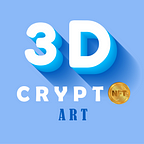A Comprehensive Guide: How to Leverage DeFi on Bitcoin
Decentralized Finance (DeFi) has revolutionized the financial landscape, offering individuals unprecedented opportunities to earn, lend, and invest without intermediaries. While traditionally associated with the Ethereum network, DeFi is now on the Bitcoin blockchain. In this blog post, we will explore how to harness the power of DeFi on Bitcoin, enabling users to maximize their financial potential. If you want to know more, keep reading and be a part of our community at Discord!
Understanding DeFi on Bitcoin
In recent years, Ethereum has dominated the DeFi space due to its smart contract capabilities. However, with the advent of projects like RSK and Rootstock, DeFi is now expanding onto the Bitcoin blockchain. RSK is a smart contract platform secured by Bitcoin miners, allowing users to create and execute smart contracts, similar to Ethereum’s functionality.
Getting Started with DeFi on Bitcoin
To begin using DeFi on Bitcoin, you’ll need a Bitcoin wallet that supports RSK integration. Wallets like MetaMask and RWallet provide users with RSK compatibility, allowing them to interact with decentralized applications (dApps) built on the RSK network. Once you have set up your wallet, ensure you have some Bitcoin to cover transaction fees and participate in various DeFi activities.
Exploring DeFi Use Cases on Bitcoin
a) Decentralized Exchanges (DEXs): Like on Ethereum, Bitcoin users can now access DEXs on the RSK network, enabling them to swap tokens directly from their wallets. Platforms like RSKSwap and Sovryn provide liquidity pools, allowing users to trade Bitcoin and other assets trustless.
b) Yield Farming: Yield farming allows individuals to lend their Bitcoin or other tokens in exchange for interest or rewards. Platforms like Money on Chain and RSKSwap offer opportunities for Bitcoin holders to earn passive income through staking or providing liquidity to various pools.
c) Stablecoins: Stablecoins, pegged to the value of fiat currencies, provide stability in a volatile crypto market. Bitcoin users can leverage stablecoins like Dollar on Chain (DOC) to hedge against market fluctuations, facilitate faster transactions, and engage in other DeFi activities.
Assessing Risks and Security Considerations
While DeFi on Bitcoin opens up exciting possibilities, it’s crucial to understand the associated risks. Here are a few key considerations:
a) Smart Contract Audits: Before interacting with any DeFi dApp, ensure the smart contracts have undergone rigorous security audits. Review the project’s documentation and assess its reputation within the community.
b) Centralization Risks: Although DeFi on Bitcoin aims to eliminate intermediaries, specific platforms may still have centralized components. Evaluate the level of decentralization and the custody of your funds when choosing a DeFi platform.
c) Educate Yourself: Stay updated with the latest trends, best practices, and potential vulnerabilities in the DeFi space. Be cautious of phishing attempts, rug pulls, and other malicious activities.
Conclusion
The intersection of DeFi and Bitcoin opens up a new world of financial opportunities, allowing users to take advantage of decentralized applications and yield-generating activities. By understanding the fundamentals, conducting due diligence, and staying informed, individuals can leverage DeFi on Bitcoin to maximize their potential in the crypto ecosystem.
Do you have any further questions? Let us know in the comments below or DM us on Instagram!
